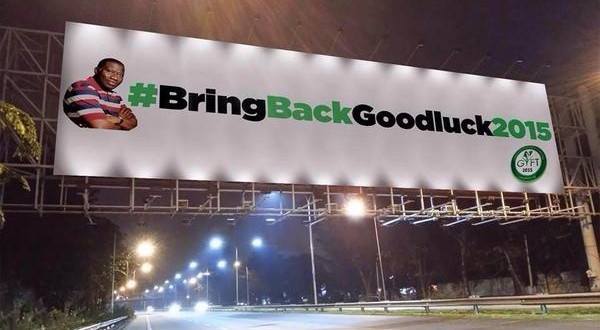On 13 August 2014, the Central Bank of Nigeria (CBN) issued a circular announcing the “re-introduction of ‘Remote-on-Us’ ATM cash withdrawal transaction fee, which will now be 65 Naira per transaction to cover the remuneration of switches, ATM monitoring and fit-notes processing by acquiring banks.” The CBN explained that “the new charge shall apply as from the 4th ‘Remote-on-Us’ withdrawal (in a month) by a card holder, thereby making the first three ‘Remote-on-Us’ transactions free for the card holder but to be paid by the issuing bank.”
This circular was not designed to be understood by even highly educated Nigerians and there’re legitimate questions whether its contents are indeed in the interest of the average Nigerian. The reasons it gave for introducing the charge on Automatic Teller Machine (ATM) transactions addressed the interests of bankers and did not at all advert to the interests of users of financial services or consumers of banking products.
To appreciate its implications, the CBN’s new policy on ATM transactions needs to be broken down in terms that mere mortals can understand. The ATM is an essential outlet for retail banking. Deposit money banks issue account holders with ATM cards, with which they can, by keying in their personalized identity numbers (PIN), access their deposits from the ATM.
It is not unusual for customers seeking to use ATMs to encounter problems. In many neighborhoods outside the big cities, many banks don’t deploy ATMs. Customers sometimes travel long distances to access them. May times, the ATM has no cash to dispense. At other times, it debits accounts for money not dispensed. Quite often, many of the ATMs are down or suffering some form outage.
Advertisement
Because of these not infrequent glitches, the Switch system enables customers to access their funds from ATMs operated by Banks other than the ones with which their accounts are domiciled. Clearly, the biggest single reason why account holders use ATMs operated by banks other than their own is system-wide inefficiency. The choice of sticking with the ATM deployed by your own bank doesn’t exist.
To any regulator interested in even-handedness between the industry and the consumer, it would make sense to take measures to progressively minimize these problems with a view, ultimately, to eliminating them. Rather than do this, the CBN chooses to penalize the customer, effectively making inefficiency a revenue stream for banks.
Thus, by this new directive, whenever any customer uses more than thrice in a month an ATM other than that operated by the Bank with which they have an account, they will be charged 65 Naira. To those who are rich and comfortable, this may sound like nothing. But in a country in which over 70% live around or below poverty lines, it’s like robbing the poor to make rich bankers even richer. It’s wrong. Even worse, it looks unlawful.
Advertisement
The powers of the CBN are not at large. They are established and circumscribed by law. Section 42 of the CBN Act sets up two standards with reference to which regulatory measures by the Bank may be assessed, namely: “high standards of conduct in the banking system” and “in the national interest.” With reference to the former standard, this policy rewards banks for maintaining an abysmal ATM payments system. With reference to the latter, the CBN has manifestly failed to take account of the interests of customers. On both counts, the legality of the new CBN directive can be questioned.
The CBN provides no evidence of monitoring or performance of the ATMs. What is the penetration of ATM deployment relative to the footprint of retail banking? What proportion of ATM transactions are failed or frustrated? What are the statistics of down time or outage on ATMs? How many complaints are logged about ATM transactions; how many are resolved satisfactorily and what is the average resolution time? Why now?
Yet, these are necessary questions because they help to explain the logics of the decision making and ensure compliance with service quality by the banks. Banks have a legitimate interest to make profit from quality service delivery. But by “re-introducing” charges before guaranteeing service quality, the CBN penalizes customers for industry inefficiencies and offers to the industry that it is supposed to regulate a perverse incentive at the expense of the customer. That’s neither in the interest of higher standards of banking nor of the public.
There is thus a suggestion of Regulatory Capture in this and some recent policies of the CBN. Regulatory Capture happens when a regulatory agency established to protect the public interest acts in ways designed exclusively to benefit the industry it is supposed to regulate, instead of the public.
Advertisement
Established under the CBN Act (2007), the CBN is a phenomenally powerful statutory body whose responsibilities include the regulation of deposit money banks and other financial institutions. Its present Governor is the immediate past Chief Executive of one of the biggest banks in the country. The Governor before him was the Chief Executive of Nigeria’s oldest bank.
With the exception of the tenure of Professor Chukwuma Soludo, the recent history of the leadership of the CBN has been a game of musical chairs between the management of deposit money banks and the apex banking regulator. This landscape of Regulatory Capture is overdue for change. If the CBN doesn’t change course, a customer fightback is called for.
2 comments







Prof. Odinkalu, I think that you squarely hit the nail on the head sir, as always.
What the new CBN policy implies is that citizens are being fined N65 for each time their bank prove to be incompetent and insensitive – which they do round the clock. Some banks do not even bother to spread their branches across the States of Nigeria not to mention providing ATM points. So in effect these banks issue thousands or millions of customers with ATM cards and then send them off to go out an “buy” ATM services from any vendor whose machines are up and running. I try not to think profane thoughts, but the analogy I come up with is like paying a token to sleep with my neighbour’s wife. Gross.
As if the indecency our ATM cards suffer is not enough, the forthcoming national ID card is also an ATM card; which then means that it shall suffer the same indignity and disrespect. Soon we shall be dipping the coat of arms, seal of the president and all the paraphernalia of citizenship and sovereignty into the bank’s ATMs pleading for access to our meagre savings. Most often than not, we will leave the ATM point empty handed – but if we do get any money, we would have paid a fine of N65 for daring to call for our money.
A while ago, my bank sent me an sms that should my ATM card become hooked in another bank, I should not bother trying to reclaim it as it would be destroyed and a new one re-issued to me. That threat scares me more than the N65 charge and I have since approached the ATM point with trepidation. Now, I shudder to think of the bank shredding my national-ID-cum-ATM card because I slotted it into the wrong ATM machine.
Excellent piece. Couldn’t have said it better. Well done Chidi Odinkalu